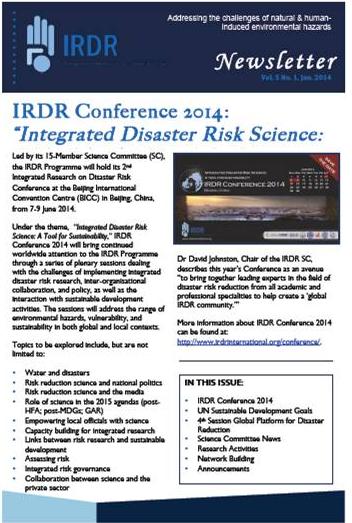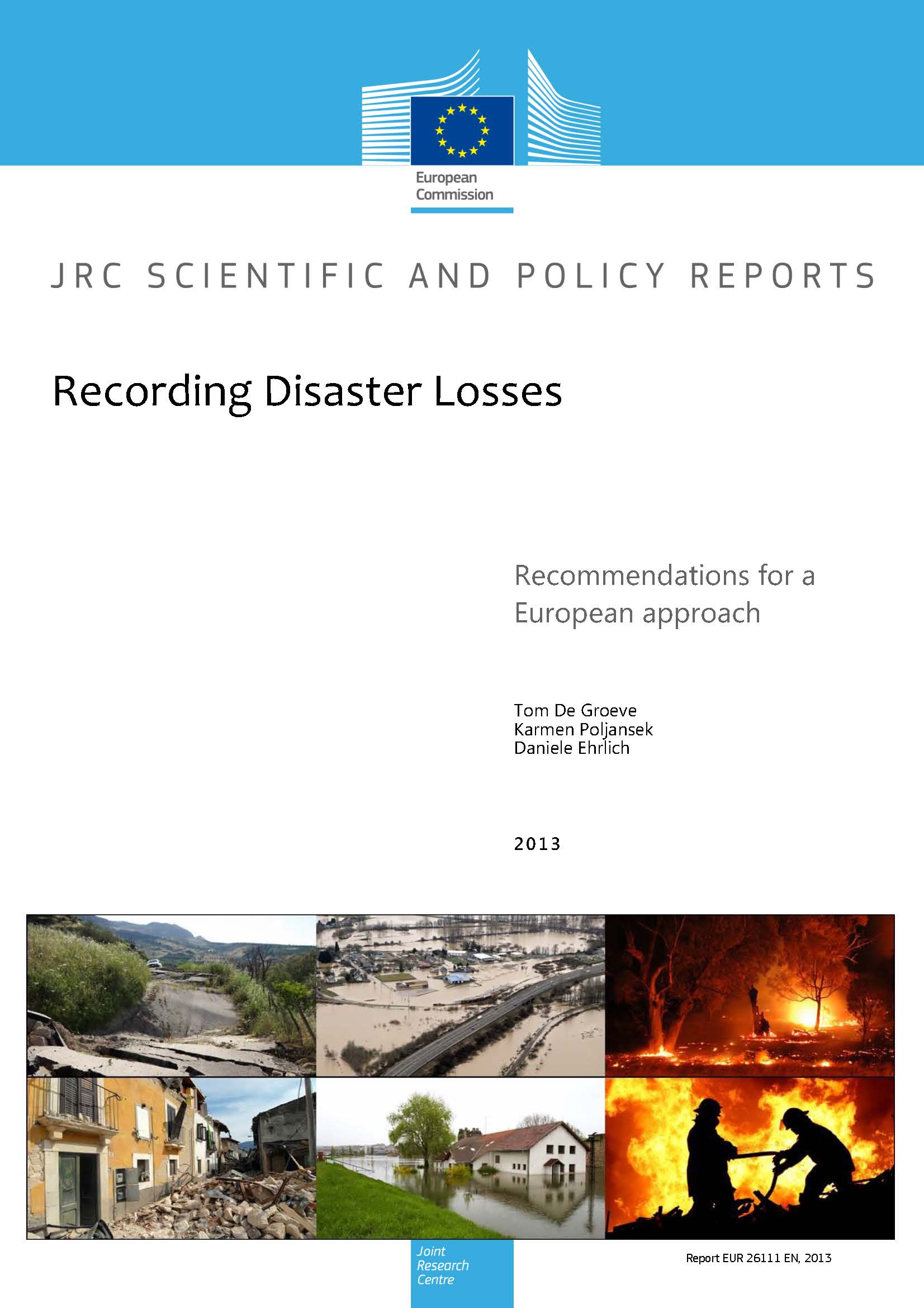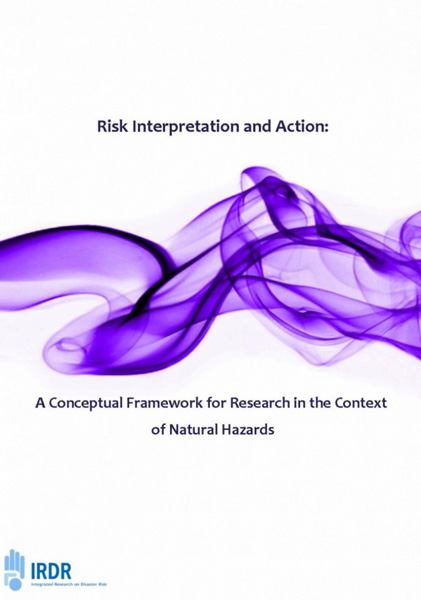In this issue of the IRDR newsletter we highlight the upcoming IRDR Conference 2014 with details on the plenary and breakout sessions, keynote speakers and registration information. This issue also covers the newly released DATA Project Report No. 1 and some of the major activities and events in which the Programme participated in during the …
Category: IRDR Publications
Understanding and documenting impacts from natural hazards is the foundation for decision-making and policy-setting in disaster risk reduction. The impacts range from human effects such as displacement, homelessness and fatalities, to environmental (wetland loss, desertification) and economic losses (damage to property and crops). Documenting impacts in a standardised and comprehensive way is challenging largely due …
In this issue of the IRDR newsletter we look back at some of the major activities and events in which the Programme planned and/or participated in, and the advances the four projects made during 2013 in pursuit of the IRDR mission. Contents of Vol. 5 No. 1: IRDR Conference 2014 UN Sustainable Development Goals 4th …
Scientific research and practitioner experience have revealed that disasters, development and poverty are intimately linked. Destruction of assets and livelihoods in disasters set back hard-won development gains and worsen poverty, often for extended periods of years[i]. Progress in ending extreme poverty may be reversed in the face of a disaster event and poverty re-entrenched. Disaster …
Issue Brief: Disaster Risk Reduction and Sustainable DevelopmentRead More »
Abstract In a study commissioned by Directorate General Humanitarian Aid and Civil Protection of the European Commission, the Joint Research Centre formulates technical recommendations for a European approach to standardize loss databases. Loss data are useful for the implementation of disaster risk reduction strategies in Europe (from local to national scales) and to help understand …
JRC Scientific and Policy Report: Recording Disaster LossesRead More »
Integrated Research on Disaster Risk (IRDR) takes a global, multi-disciplinary approach to dealing with the challenges brought by natural disasters, mitigating their impacts, and improving related policy-making mechanisms. Although the approaches in the sciences vary, Programme approaches the issues of natural and human-induced hazards and disasters from several perspectives: from the hazards to the disasters, …
The vision of the IRDR programme is being pursued through the principal goals and strategic activities proposed in the IRDR Science Plan (ICSU 2008), and outlined in detail in its Strategic Plan (2013-2017). The successful implementation of these actions will depend on the support of the implementation of this Plan and active collaboration, cooperation and …
Abstract Understanding how people interpret risks and choose actions based on their interpretations is vital to any strategy for disaster reduction. We review relevant literature with the aim of developing a conceptual framework to guide future research in this area. We stress that risks in the context of natural hazards always involve interactions between natural …
RIA Review Article in the International Journal of Disaster Risk ReductionRead More »
Integrated Research on Disaster Risk (IRDR) takes a global, multi-disciplinary approach to dealing with the challenges brought by natural disasters, mitigating their impacts, and improving related policy-making mechanisms. Although the approaches in the sciences vary, Programme approaches the issues of natural and human-induced hazards and disasters from several perspectives: from the hazards to the disasters, …
Our emphasis in this report is on the contributions that can be made to integrated risk analysis and risk reduction through the study of human behaviour and decision-making. Our aim is to provide an integrated perspective on research on risk and decision-making and offer pointers to how this can be applied to natural hazards, and …
Risk Interpretation and Action (RIA) Report No. 1Read More »









